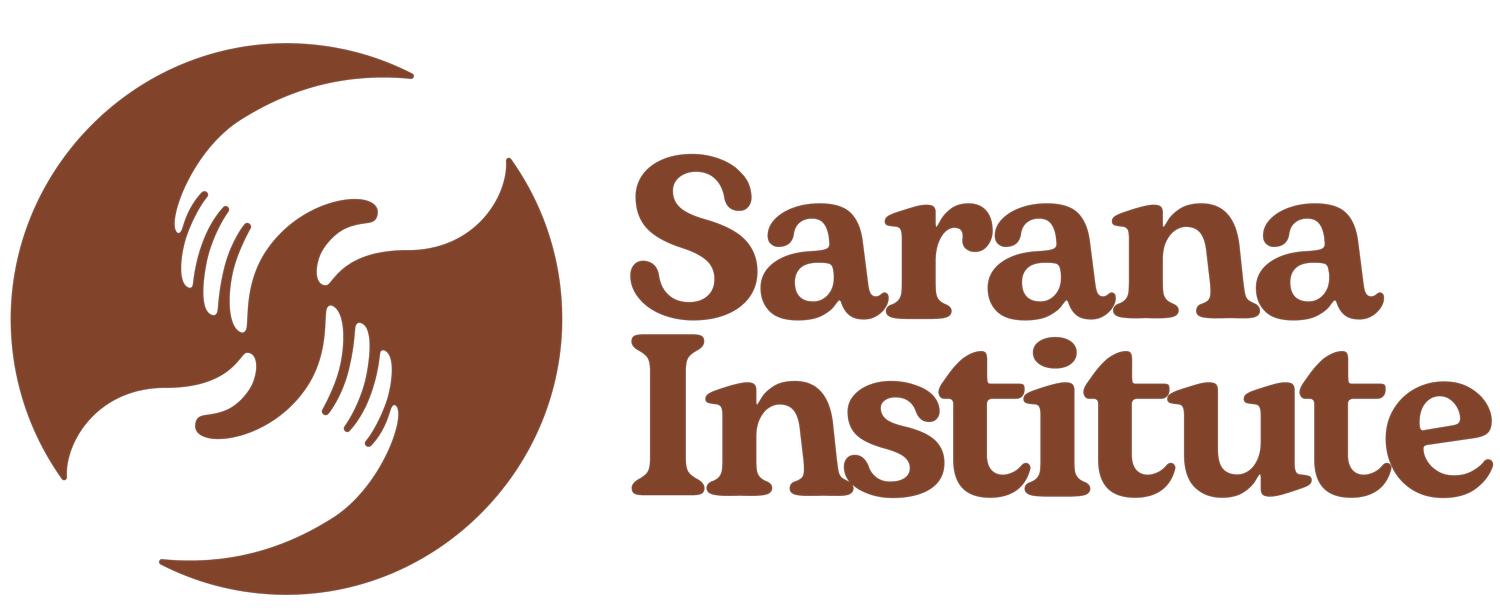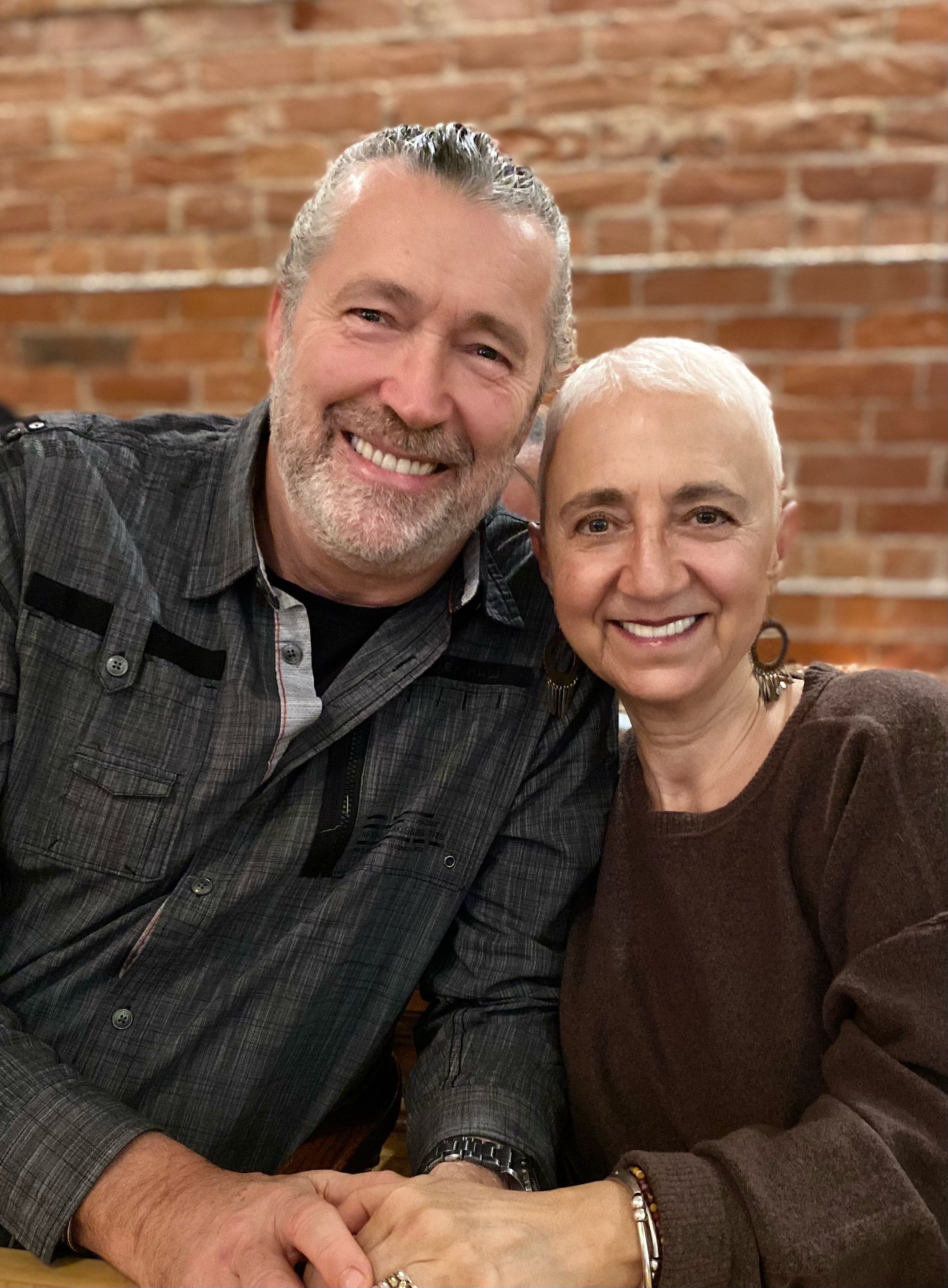The Sarana Story
Today, Sarana Institute provides education, resources, and support to sustain our health and spiritual well-being. We do this by strengthening our emotional resilience as we navigate the many complexities of life, including the inevitability of caring for each other in our aging, illness and dying.
While our initial efforts were directed toward supporting caregivers in the Hospice community, we first needed to build a community of support for our work. We began inviting spiritual leaders and healers from Buddhist and Indigenous traditions, hosting esteemed figures like Sharon Salzberg, Roshi Joan Halifax, Ven. Dhyani Ywahoo, Diane Longboat, Ohki Simine Forest, and Frank Ostaseski, who offered inspiring public talks and workshops. In the early days of Sarana Institute, our financial support came from memberships and fundraisers like our annual Christmas Craft Show.
Fast forward twenty-five years, and Sarana has broadened our outreach to include the whole healthcare team, encompassing palliative, long-term, and healthcare communities. We also launched a new initiative in 2016 to support young adults 18 to 35, grappling with the unique stresses and pressures of our rapidly changing and unstable world.

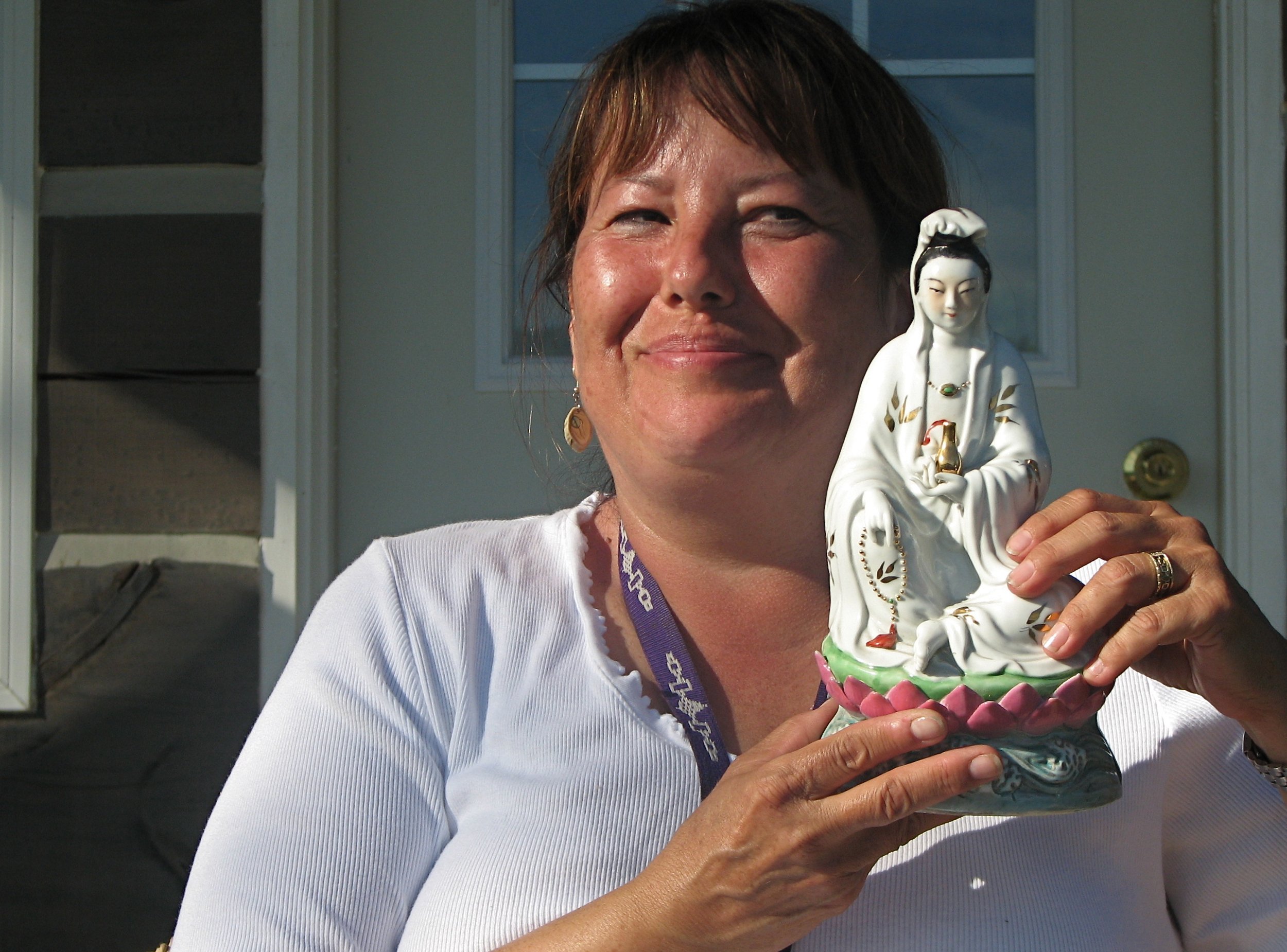
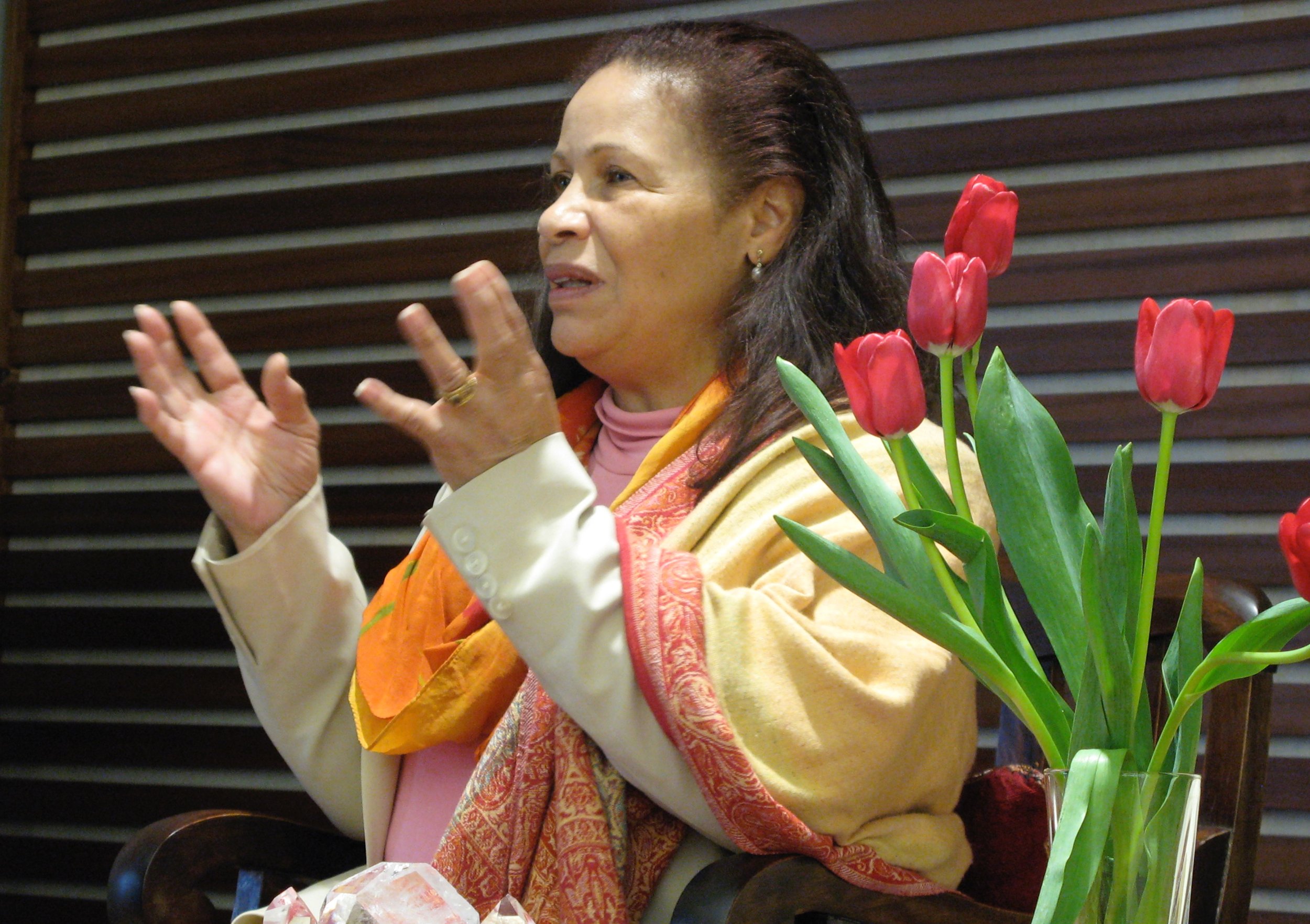
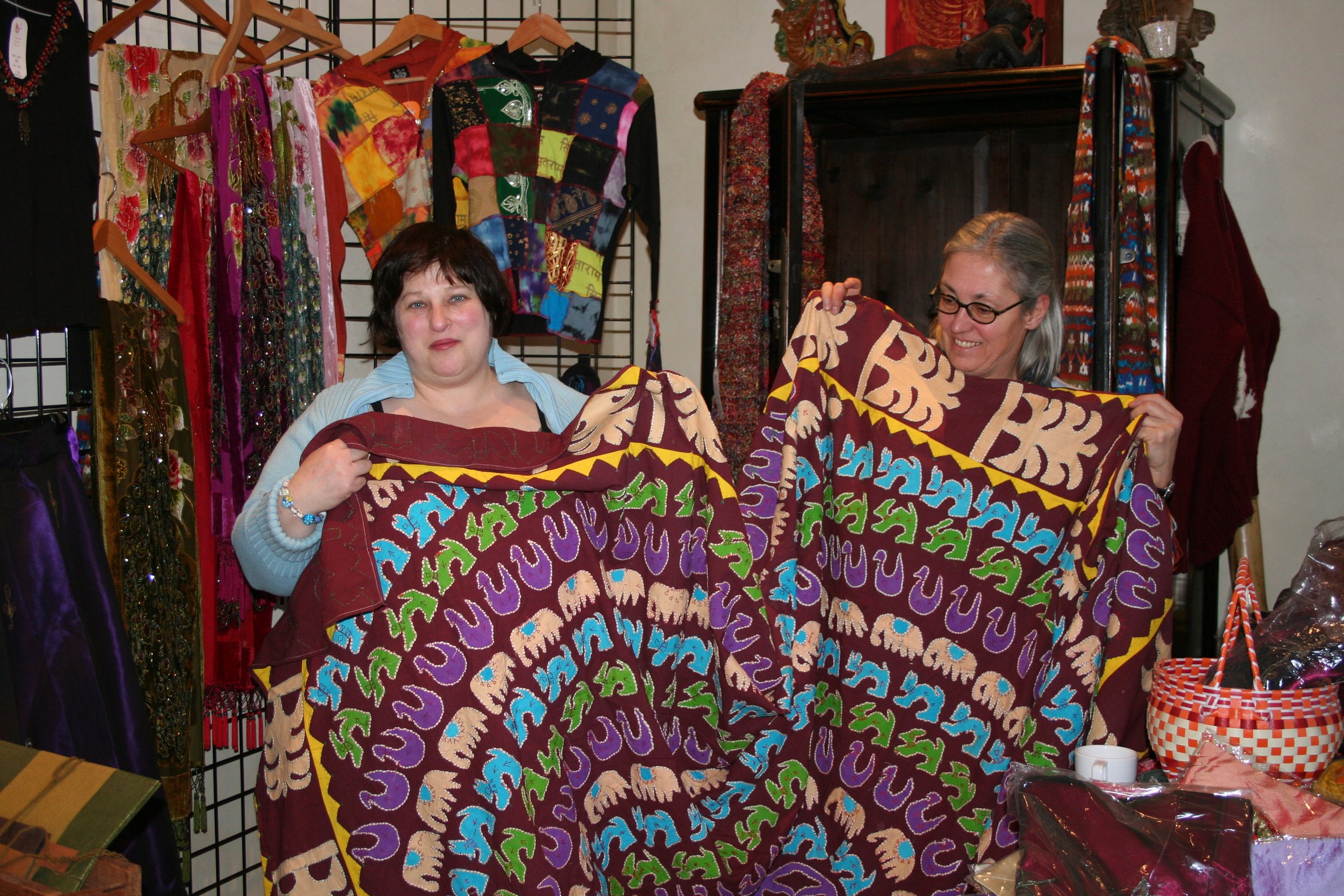
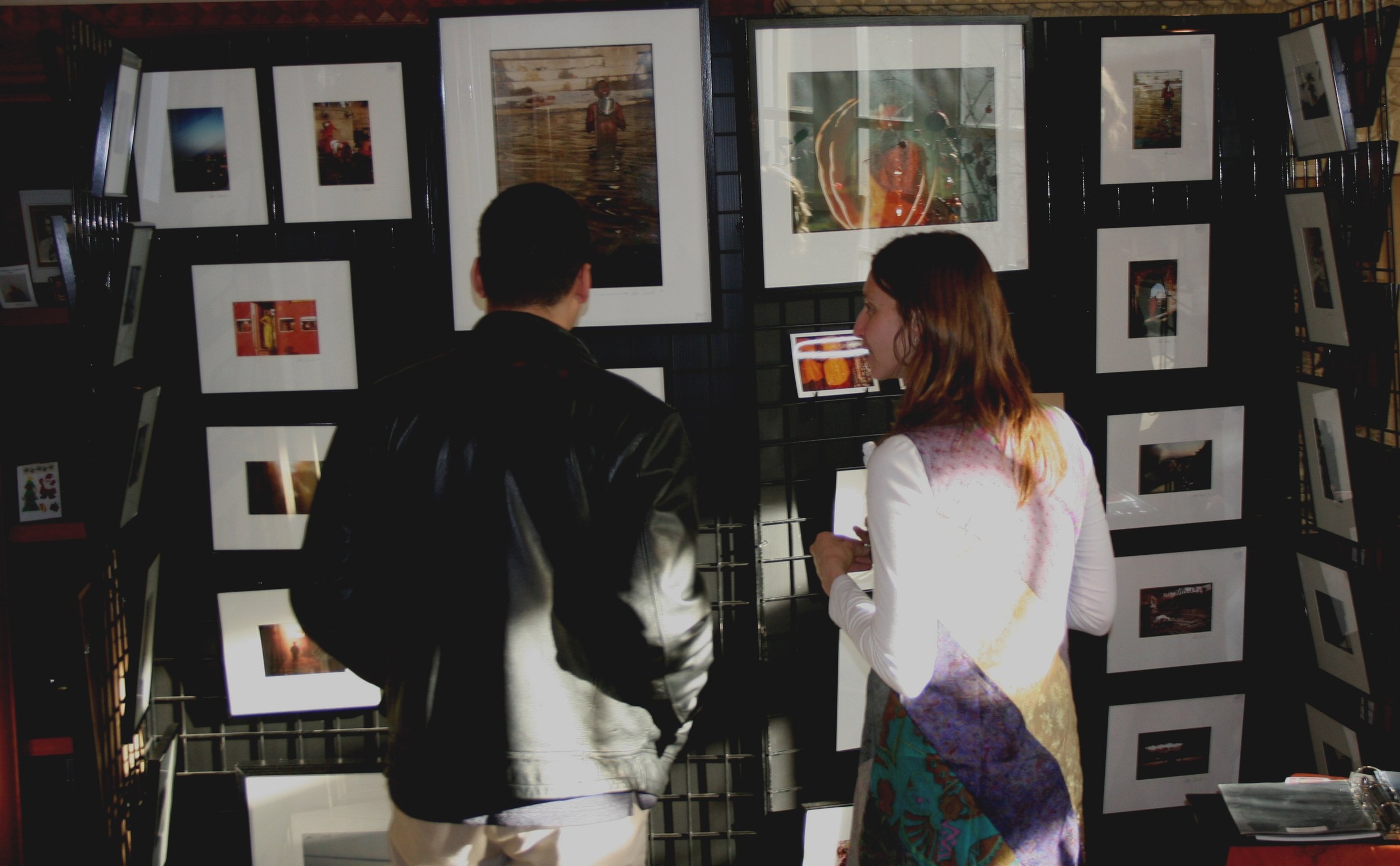
Early Beginnings and Legacy
The foundation of our organization was deeply influenced by the vision of our third founding member, Alido Di Iorio. A builder and land developer, Alido's journey through cancer awakened his connection to spiritual healing and the significance of our relationship with the Earth, including how we impact the environment. Diagnosed with brain cancer in 1990, his path led him to a sacred vision through numerous healing encounters and spiritual experiences. Envisioning building a healing centre, he sought the assistance of Andrew and Angie, known for their healing and community-building skills, to realize this dream. He firmly believed in the healing power of the land.
“Gitche M’Qua,” was a spiritual name given to him by Anishnaabe elder Ken Desmoulin. It translates to 'great bear' in Ojibwe. In some traditional Medicine Wheel teachings, the bear is the “spiritkeeper” of the West and signifies the mature adult phase of life. The bear also represents the time in our lives when we face sickness or a healing crisis that can lead to death or transformation. Alido's journey, particularly after his re-diagnosis in 1997, demonstrated that transformation and spiritual healing are possible, even when curing is not.
His unflinching commitment to his healing process led to a profound experience for his entire community and left a legacy that is still alive in us today. Following his death in 1998, we continued to honour his vision by naming ourselves Gitche M’Qua Centre for Healing & Dying. In 2004, we became a registered not-for-profit charity with the support of many long-time friends, including Nancy Meyer, Bev Hunter, Jim Milligan, Paul Chan, Steven Vaccaro, Stuart Sackman, and lastly, Noah Howard, who continues to serve on our board today.
In the spring of 2023, to commemorate 25 years since his passing, the community gathered to plant 29 fruit trees, and we commissioned a bear sculpture in his honour.

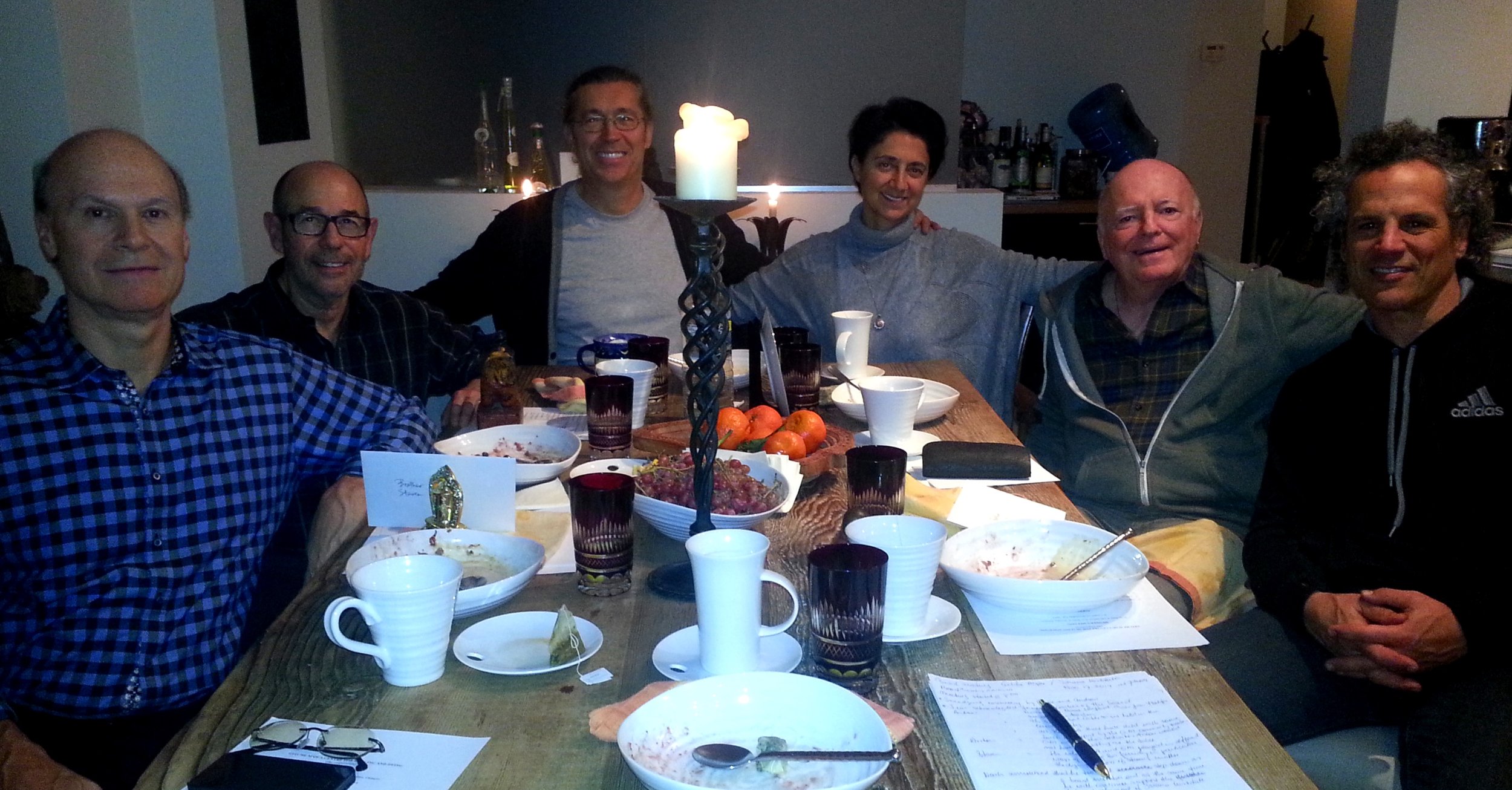

Building Programs to Sustain End-of-Life Caregivers
In 2000, at a Death and Dying Conference in New York City, Angie and Andrew's paths crossed with Buddhist teacher and End-of-Life Educator Roshi Joan Halifax. This encounter sparked a decades-long cycle of friendship, mentorship, and study of the Dharma. Roshi Joan officiated their marriage in 2002, and later, in 2010, she conferred upon them the title of Buddhist chaplains after they completed her two-year chaplaincy program at Upaya Institute in Santa Fe, New Mexico. Her teachings, based on her program Being With Dying, became a cornerstone of our programs in Ontario, Canada.
Birth of our Flagship, Mindfulness and Compassion Certificate Training
In 2006, inspired by Gitche M’Qua’s vision and their shared purpose, Angie and Andrew acquired a 171-acre property near Chatsworth, ON, where we built the Temple Barn in Gitche M’Qua’s honour. The land was named Sarana Springs, and it is home to not only nine freshwater springs, two ponds and a small lake, but it has many diverse habitats, including meadows, pine, cedar, and mixed-wood forests, bog, wetland, and is the source of the Big Head River that flows into Georgian Bay. While they were focussing on the Toronto-based community network, the seeds of Alido’s vision were slowly being sowed as their relationship to the land grew.
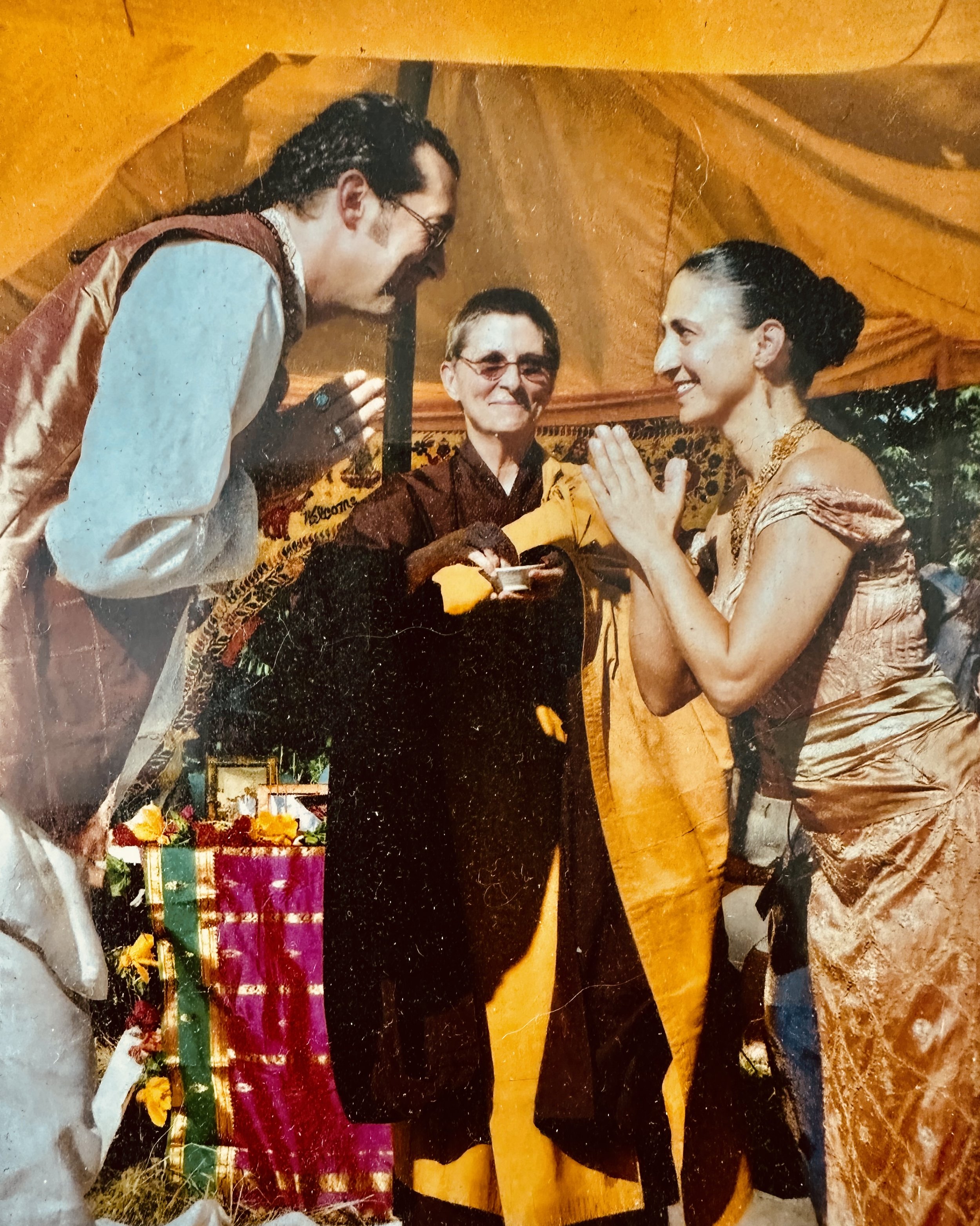

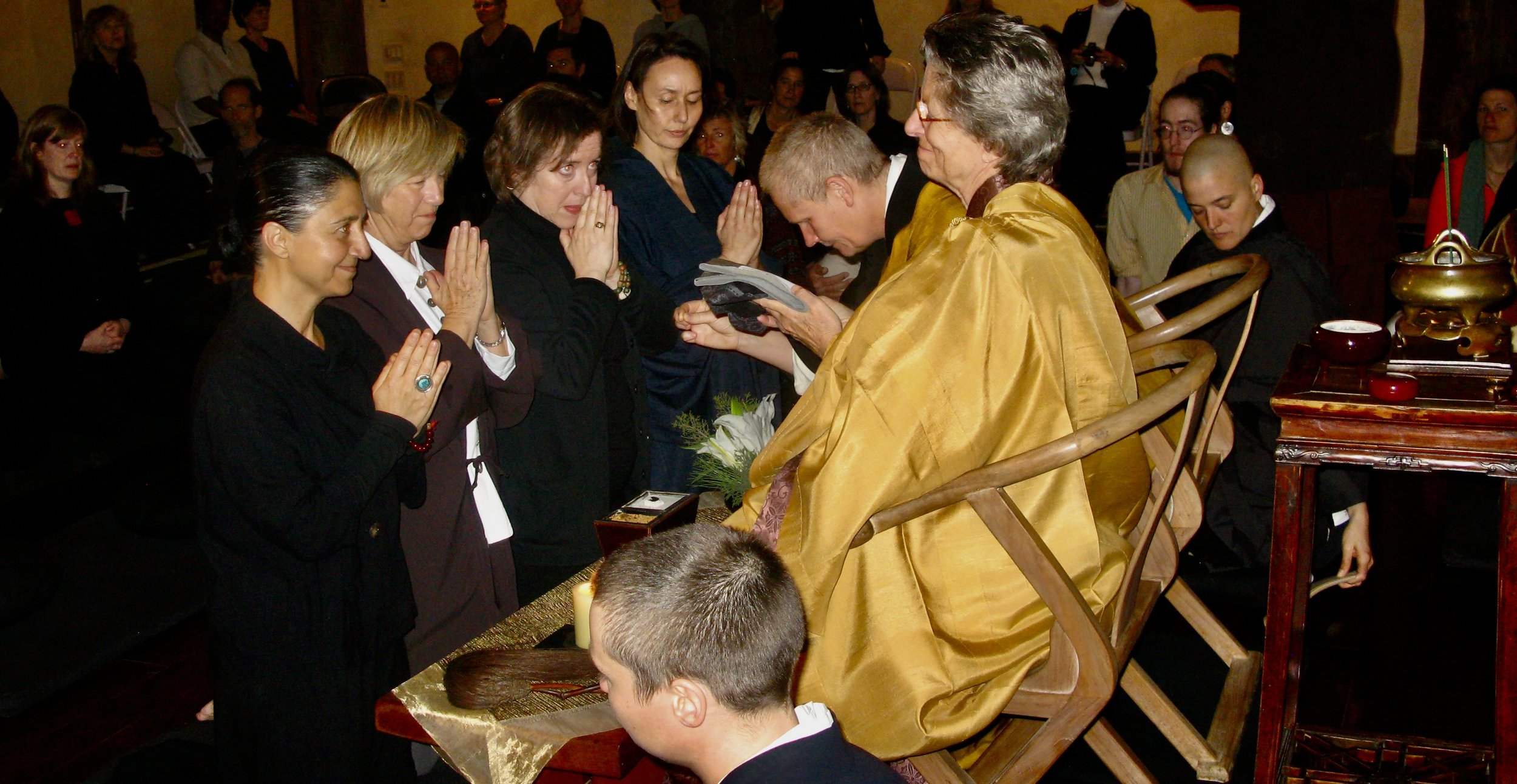

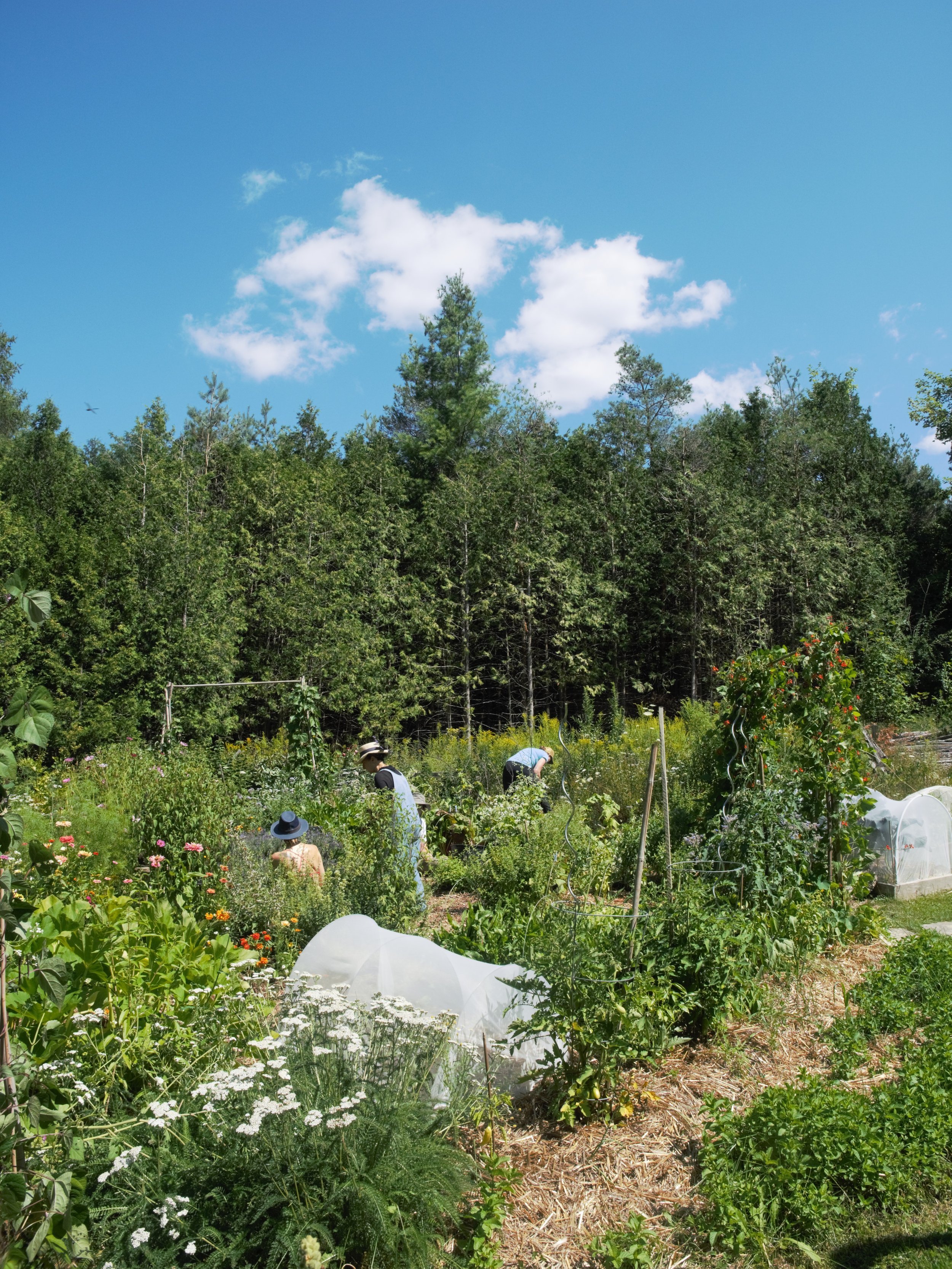

In the early days, we grew tremendously from the gifts of our Being With Dying Council, where early supporters and professionals like Andrea Warnick, RN, MA, Lysa Toye, MSW, Pauline Abrahams, MD, Shari Geller, PhD, Kane Kinoshita, helped us by offering time and by teaching a diversity of programs for the community. And much later, in 2012, Andrew was invited by Michelle Chaban, PhD to teach at the University of Toronto through the Department of Social Work and Continuing Education, where he developed the first version of our 5-module, 9-month Mindfulness and Compassion End-of-Life Certificate program. Born out of his thesis as a Buddhist Chaplain, he aimed to teach mindfulness and compassion skills to prevent caregiver burnout. Initially, he taught with an evolving faculty, including palliative care physician Monica Branigan, who was with the program for several years.
This training program, rooted in Roshi Joan’s teachings and supported by compelling Neuroscience research, laid the foundation for the emergence of our present-day Mindfulness and Compassion Certificate Training for professionals. Strengthened by an invitation from chaplain Ani Jamyang Dolma, we began an ongoing collaboration with SickKids Hospital and their Mindfulness Project, which has become their Compassion Champion Initiative. The program was further strengthened with the combined expertise of new faculty members Lysa Toye, MSW (Cohort 1), and Agnes Wong MD (Cohort 2). Together as a trio, they fostered an exceptional, world-class program offering clinicians and volunteers a profound and transformative training that addresses the needed skills in mediating burnout and empathy fatigue in populations serving at the edges of healthcare and end-of-life.


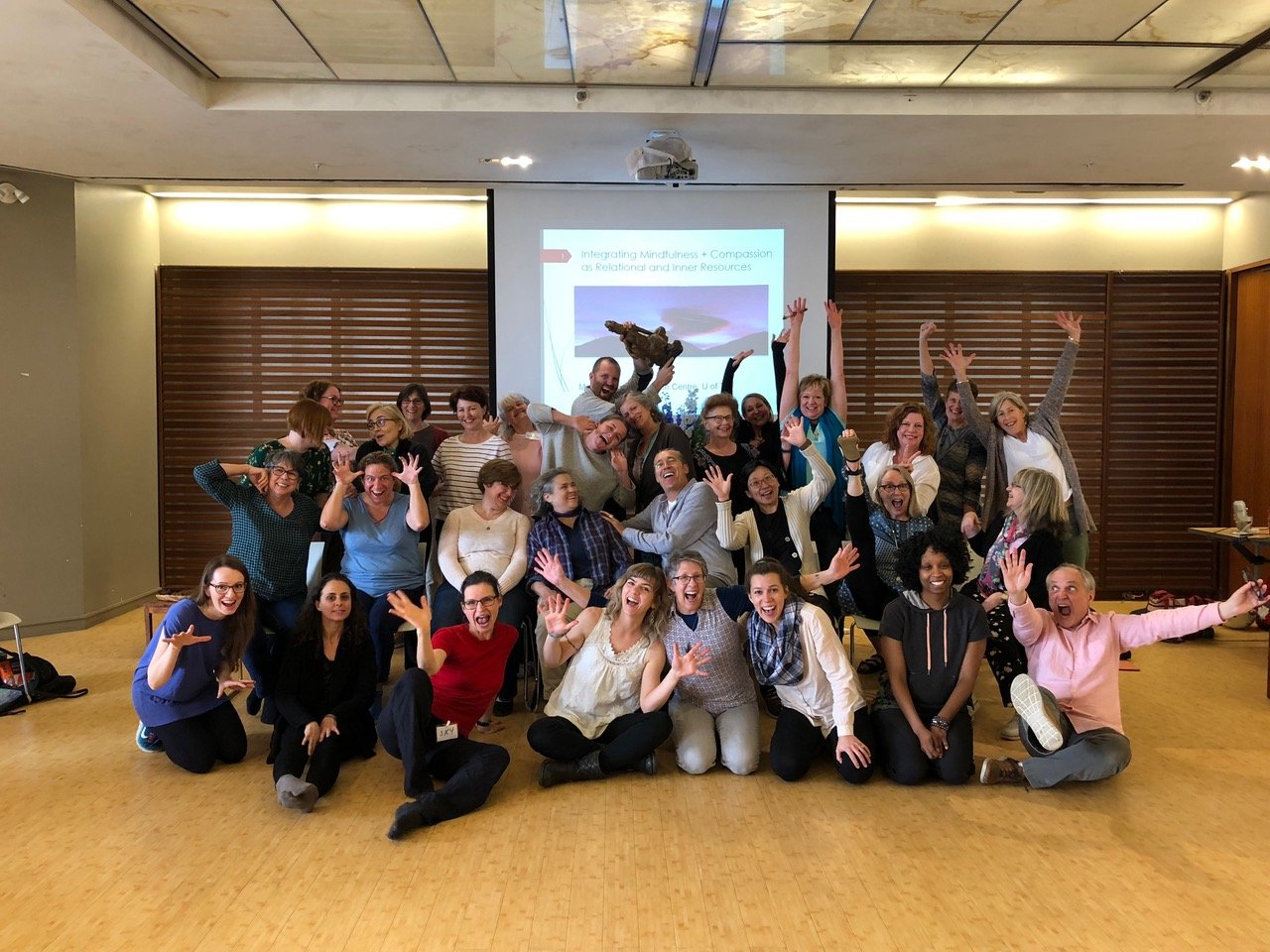
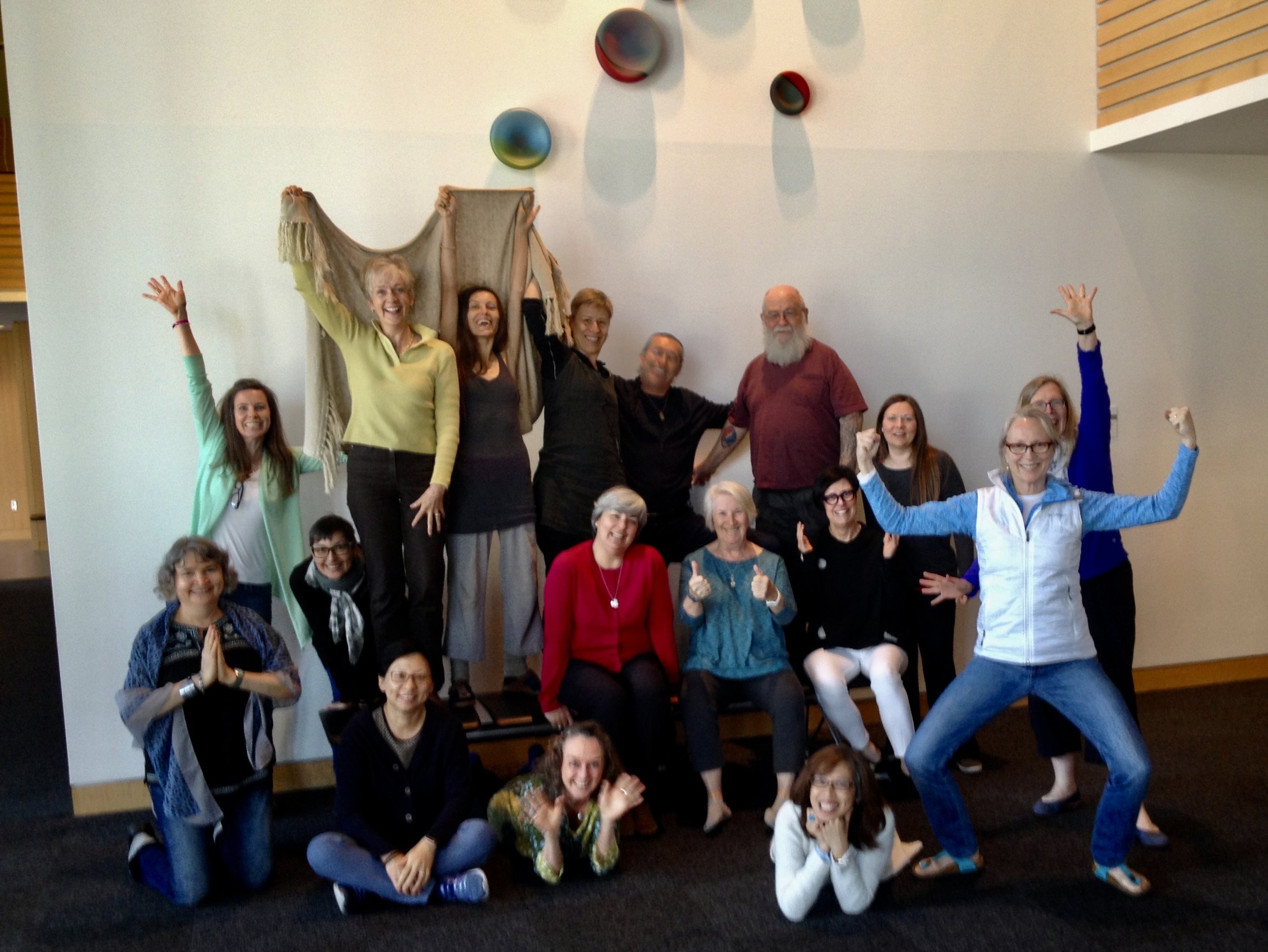

Becoming Sarana Institute
In the fall of 2014, Gitche M’Qua Centre was rebranded and renamed Sarana Institute, following a period of renewal and revision. This period was ushered by the arrival of our new board chair, Maureen Flanagan, who steered and shepherded us on a new course.
During her chaplaincy, Angie discovered the word 'sarana,' from ancient Pali, which means 'refuge and sanctuary.' While easier to pronounce and spell than Gitche M’Qua, we continue to honour Great Bear’s legacy. For us, ‘sarana’ symbolizes our individual and collective need for internal and external resources that build strength and grounding in our lives. All our teachers and programs draw from diverse traditions, including Buddhist Philosophy and Psychology, Secular Mindfulness, Neuroscience, Psychotherapeutic Modalities, Eco-psychology, Indigenous, and Earth-based traditions, as well as Social psychology and Trauma-informed approaches. Each offers a different view of integration and transformation and guides us toward insight that reveals our wholeness.



In 2015, under the leadership of our new chair, Maureen Flanagan, we updated our strategic plan and launched a new website. Our tagline became: offering mindfulness training that awakens compassion in caring for ourselves, others, and the earth. Sarana aims to extend these life-changing skills beyond professionals, volunteers and family caregivers to reach into our young adult populations and further to support each of us as we face the need for inner stability and radical hope in being with our imperilled world.
Following our relaunch, In response to the climate crisis and the impact of global change in our younger generations, Angie wanted to create a program to respond to the need. She studied Permaculture, began developing food and medicinal gardens at Sarana Springs, and gathered with older-stage adults to consider how mentoring and training were needed for young adults. She also met Maxine Iharosy, who worked collaboratively with Angie and Andrew in creating the new curriculum. Their combined energies, alongside our supporting faculty of Naty Howard and Goldie Sherman, led to the creation of the Yana (Young Adult Nature Awareness) program, where we host 4-6 day retreats with young adults interested in inner transformation, mindfulness, and spending time in the natural world in community living.
Sarana Institute is committed to supporting you as you have supported us.
Today, we are guided by a dedicated team including Angie, Andrew, Maxine, our Managing Director Luke Albert, our Board Chair Maureen, board members Noah Howard and Gloria Della Maestra, and our accountant Brenda Alizadeh. Over the years, sustaining beneficiaries have emerged entirely from those who attend our programs. Our benefit in the community speaks to this generosity and support that comes back to us. As we look ahead to institutional charitable giving to sustain us, we are ever grateful to each of you who gave to us, large and small.
We especially want to acknowledge and appreciate the support over the years from; an anonymous donor, Shelley Harris, Janice Legere, Robin Vaille, Bev Hunter, Catherine Dyer, and the Lang Family Foundation through the generosity of Robin Lang (a past participant of the Yana Program).
Whether you join us online or attend a program in person at Sarana Springs, we hope you leave feeling more grounded, wiser, and kinder. We envision a world where, in caring for ourselves, we are better equipped to care for others and, ultimately, our planet Earth. Our human capacity is our shared heart that becomes boundless when many hands reach out in care, and where joy and inner well-being sustain our efforts, we turn towards the world's suffering together. Each in our way, our world is made whole.
With loving + kindness,
(Rev.s) Angie and Andrew Blake
